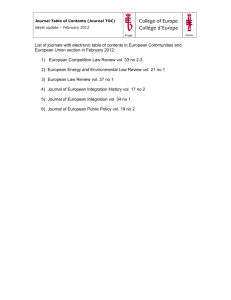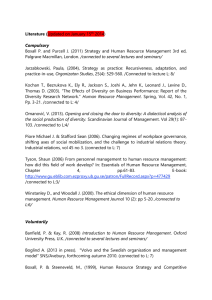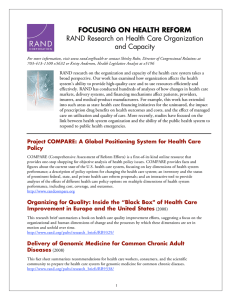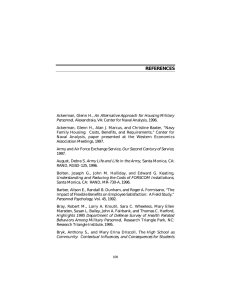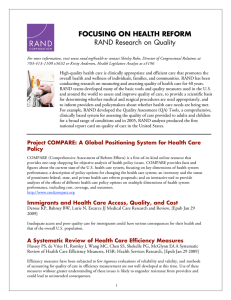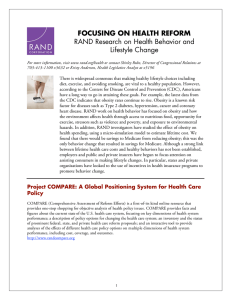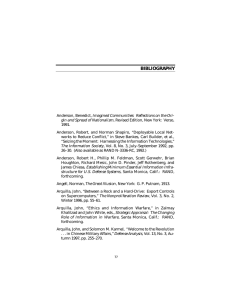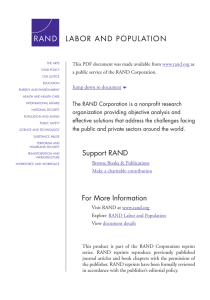FOCUSING ON HEALTH REFORM
advertisement
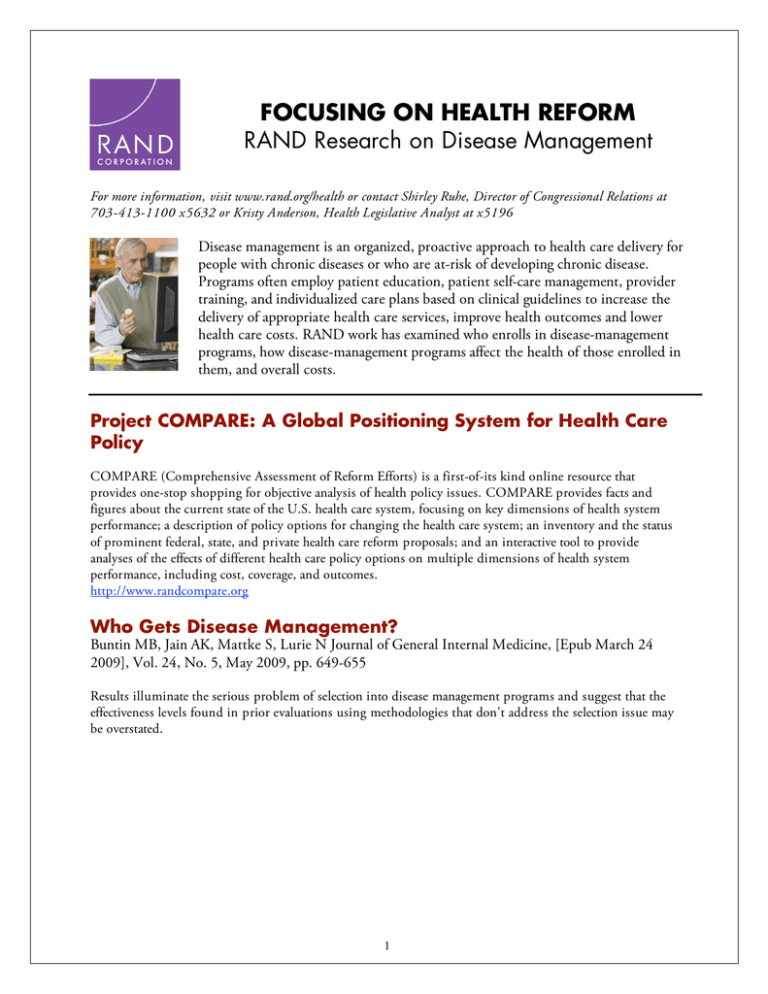
FOCUSING ON HEALTH REFORM RAND Research on Disease Management For more information, visit www.rand.org/health or contact Shirley Ruhe, Director of Congressional Relations at 703-413-1100 x5632 or Kristy Anderson, Health Legislative Analyst at x5196 Disease management is an organized, proactive approach to health care delivery for people with chronic diseases or who are at-risk of developing chronic disease. Programs often employ patient education, patient self-care management, provider training, and individualized care plans based on clinical guidelines to increase the delivery of appropriate health care services, improve health outcomes and lower health care costs. RAND work has examined who enrolls in disease-management programs, how disease-management programs affect the health of those enrolled in them, and overall costs. Project COMPARE: A Global Positioning System for Health Care Policy COMPARE (Comprehensive Assessment of Reform Efforts) is a first-of-its kind online resource that provides one-stop shopping for objective analysis of health policy issues. COMPARE provides facts and figures about the current state of the U.S. health care system, focusing on key dimensions of health system performance; a description of policy options for changing the health care system; an inventory and the status of prominent federal, state, and private health care reform proposals; and an interactive tool to provide analyses of the effects of different health care policy options on multiple dimensions of health system performance, including cost, coverage, and outcomes. http://www.randcompare.org Who Gets Disease Management? Buntin MB, Jain AK, Mattke S, Lurie N Journal of General Internal Medicine, [Epub March 24 2009], Vol. 24, No. 5, May 2009, pp. 649-655 Results illuminate the serious problem of selection into disease management programs and suggest that the effectiveness levels found in prior evaluations using methodologies that don't address the selection issue may be overstated. 1 Evidence for the Effect of Disease Management: Is $1 Billion a Year a Good Investment? Mattke S, Seid M, Ma S. The American Journal of Managed Care, Vol. 12, No. 12, Dec 2007, pp. 670-676 Although disease management seems to improve quality of care, its effect on cost is uncertain. Most of the evidence to date addresses small-scale programs targeting high-risk individuals, while only three studies evaluate large population-based interventions, implying that little is known about their effect. Payers and policy makers should remain skeptical about vendor claims and should demand supporting evidence based on transparent and scientifically sound methods. Congestive Heart Failure Disease Management in Medicaremanaged Care Mehrotra A, McNeil BJ, Landon BE. American Heart Journal [Epub Sept 14, 2007], Vol. 154, No. 6, Dec 2007, pp. 1153-1159 In Medicare-managed care plans, there is widespread use of CHF disease management. However, the programs used primarily focus on patient self-management and not on engaging physicians on medication management and compliance with guidelines. Our findings raise the concern that these programs will not be able to achieve the quality improvement and cost savings previously demonstrated in clinical trials of CHF disease management. Effect of Disease Management on Prescription Drug Treatment: What Is the Right Quality Measure? Mattke S, Jain AK, Sloss EM, Hirscher R, Bergamo G, O’Leary JF. Disease Management, Vol. 10, No. 2, April 2007, pp. 91-100 Measures of medication adherence have become common parameters with which disease management (DM) programs are being evaluated, leading to the question of how this concept should be measured in the particular context of a DM intervention. The Effect of a Disease Management Intervention on Quality and Outcomes of Dementia Care: A Randomized, Controlled Trial Vickrey BG, Mittman BS, Connor KI, Pearson ML, Della Penna RD, Ganiats TG, DeMonte RW Jr., Chodosh J, Cui X, Vassar S, Duan N, Lee M. Annals of Internal Medicine, Vol. 145, No. 10, Nov 2006, pp. 713-726 A dementia guideline–based disease management program led to substantial improvements in quality of care for patients with dementia. 2 Using Foresight Methods to Anticipate Future Threats: The Case of Disease Management Ma S, Seid M. Health Care Management Review, Vol. 31, No. 4, Oct-Dec 2006, pp. 270-279 We describe a unique foresight framework for health care managers to use in longer-term planning. This framework uses scenario-building to envision plausible alternate futures of the U.S. health care system and links those broad futures to business-model-specific "load-bearing" assumptions. Isolation of Health Services Research from Practice and Policy: The Example of Chronic Heart Failure Management Seow H, Phillips CO, Rich MW, Spertus JA, Krumholz HM, Lynn J. Journal of the American Geriatrics Society, Vol. 54, No. 3, Mar 2006, pp. 535-540 Policy-makers, health service researchers, and funding agencies could develop more-effective methods for translating proven models of healthcare delivery into routine practice. Reforms that might improve the effectiveness of the linkages between research, policy, and practice are suggested. The Office of Congressional Relations provides any of the listed documents to Congressional offices and U.S. Federal agencies on request, at no charge. Updated 6/15/09 3




